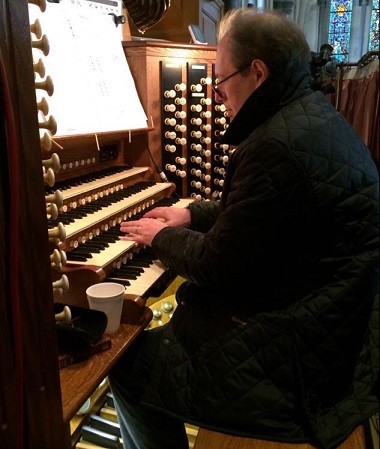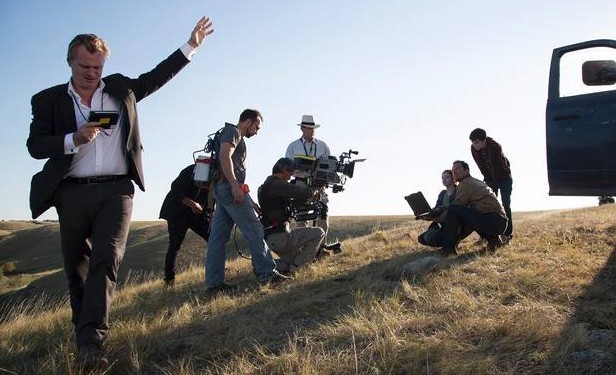For my premier article for The Sound Architect I’ve conducted somewhat of my own personal experiment.
For a moment, let’s forget Interstellar. Daft, I know. But hear me out.
Let’s go back to June 2013. Eagerly awaiting the release of Man of Steel, I purchased the soundtrack about a week before I was able to see if at the cinema. I lived and breathed every moment of that score for the whole week prior to watching the film and fell in love with it. I watched the film, and fell in love with that too. Yet what worries me is that a lot of my colleagues, friends and family raise and eyebrow when they hear me express such emotion over Man of Steel. Are they all wrong? I hope so, since I very much enjoy being right.
I still listen to that score on a regular basis and enjoy it just as much. But, a part of me feels like I enjoyed the film much more because of how the score resonated with me whilst watching the film. Maybe I loved the film much more because of the music, I don’t know. So when I heard Interstellar was to be released, I purposely bought the soundtrack and left it in it’s sealed wrapping. I wanted to see if my lack of emotion towards the music was affecting my overall feelings towards the film. I’ve had the soundtrack since Christmas and it’s been sat on my studio shelf, waiting to invade my ears since then. I broke the seal today, three hours before sitting to write this article.
Twice, I have watched Interstellar now, and twice I’ve made sure I had no interruptions. For reference, I’ve listened the soundtrack and watched film both via standard Samsung LCD TV speakers and my studio KRK Rokit 6’s.
So let me express to you my thoughts on Interstellar…
The Music
In typical Hans Zimmer fashion, in each of his modern scores he tends to focus on a specific element. When I say element I mean a culmination of instruments or a certain sound. Akin to Man of Steel (multiple drummers and slide guitars), this time Zimmer seems to have focused on this great church organ at Temple Church in London. Played brilliantly by Roger Sayer.
When I first heard this organ, I was slightly taken aback. I had expected this expression of time and space on an epic proportion. Rumbling basses, low frequencies and intricate melodies to complement too, even more so from a Nolan-Zimmer collaboration on a science fiction blockbuster.
Little did I expect this religious, human effort, it kind of, grounded me to reality. The organ, for me, signified that this film, although being a sci-fi epic, was not going to be about space. It was going to be about love, emotion, families, legacy.
Now as I write this I must remind you that prior to watching Interstellar I had very much stayed away from the web interviews. All I knew is that it was a film about going into space because the earth was pretty much screwed. Oh, and Matthew McConaughey.
For nobodies benefit but my own, I wanted to stray away from the Nolan/Zimmer fanboy-isms that I had over the Dark Knight Trilogy, Inception and Man of Steel and watch the film as unbiased as possible.
Without dissecting each individual piece of score, I’m going to break down what I thought in short form.
The score draws you in a slowly teases you with hints of exploration and discovery. When you get to the Cornfield Chase section of the score, I hear slight nods to other sci-fi films. Subtle hints to ET and even Gizmo’s Mogwai theme from Gremlins. Whether this is intentional or accidental, the nostalgia draws you in wanting more.
There were times when I felt the music was too high in the mix of everything. Especially in ‘Stay’ where you get a feeling of grandiose and fear at the same time, personally I felt there was too much synth in this section.
It was refreshing to see that Hans had not conformed to the traditional “let’s have this theme for this planet” ideas and kept a similar theme running throughout the film. This is apparent in ‘Mountains’ where you would expect a rumbling percussion-led dramatic sequence yet it still stays true to the original themes early in the film. It’s rising anticipation, clock-ticking, organ-bursting and choir-chanting emotion rolls out. It reminds me of my Zimmer favourites such as ‘Time”.
The Sound
 Richard King and his team at Warner Bros. Studios have done a great job at integrating the known with the unknown sounds of space.
Richard King and his team at Warner Bros. Studios have done a great job at integrating the known with the unknown sounds of space.
There were no false synth noises, digitalised whooshes and moans what I’d expect from a sci-fi flick. The sound design just seemed, well, honest.
They aimed for a more natural feel, instead of focusing on what space ‘sounded like’ they focused on what the effects of space has on the environments the characters were in. Such as the ships and the terrain. The end of the film sees you in a situation which can’t be represented by sound, but still they pull it off very well.
The sound and dialogue were never too harsh or too high in the mix and sometimes the slight lack of it was pleasing to the ear.
Conclusion
Here’s where I’ll get my Kevlar on. I didn’t like it. Don’t get me wrong, the story was great, although even me, a lover of all things space found some points of the plot to be farfetched.
Musically Hans did a good job, I wouldn’t put Interstellar at the top of my playlist out of either his work, or as a compilation of other works. But the intensity of the organ coupled with his pseudo-synth flair gave the film exactly the right amount of drive.
Sound-wise, I can’t fault the efforts of Richard and his team. It’s much simpler to sample and dub a terrestrial film, but take it out of our orbit and you start to feel a challenge. The sound design was spot on.
But, I feel those were the only points that kept me interested in the film, for a large part of the 169 minute running time.
There’s so many variables to factor in my little experiment about listening to a soundtrack prior to seeing a screening of a film. But for this one, I feel that even if I had adored the soundtrack previously, I doubt it could have changed my mind about my experience of watching it. If the film had been a slightly bit more condensed with a not-so yo-yo music mix then I could have enjoyed it more.
But that’s just my opinion. I will give it another chance and will definitely have the CD in my car to accompany me when the mood takes me there.
For now, I’m itching for the next film I’ll hopefully review this month: Avengers: Age of Ultron, scored by Brian Tyler and Danny Elfman.
Article by Andrew Overfield
Edited by Sam Hughes
Photo Credits:
Interstellar Album Image: Amazon.com
Organ Image: hans-zimmer.com
Sand blasting sound design image: booooooom.com
Chris Nolan image: independent.co.uk
Like what we do? So do we! To keep going and bring you even better and higher quality content (plus getting more awesome writers involved) we’ve set up a Patreon page!
https://www.patreon.com/SoundDesignUK
We hope to continue giving back to the audio community and with a little support we can go a long way.
Whether you donate, share the link or just read the interviews we’re very happy you stopped by and psyched that you like our content!
Thanks a lot!
Sam – Lead Editor




